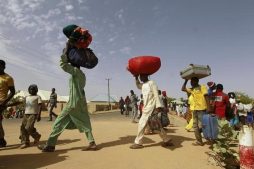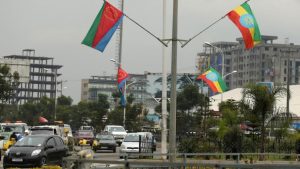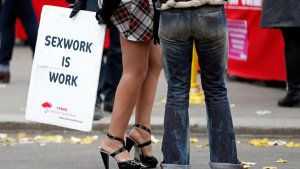A new report by the Human Rights Watch (HRW) has found that government does not allocate enough money to pay for the care and support services for elderly people in South Africa, which are covered by the Older Persons Act.
The report “This Government is Failing Me Too: South Africa Compounds Legacy of Apartheid for Older People”, was released in Rosebank, Johannesburg on Tuesday.
The study interviewed 63 senior persons aged 60 to 85 in the Eastern Cape, Gauteng, and the Western Cape.
HRW Senior Researcher of Rights of Older People, Bridget Sleap says the fact that older people don’t have access to care and support is not unique to South Africa. She says older people across the continent don’t have access to services that enable them to live with dignity.
“What is different about South Africa is that it has good laws that guarantee older people the right to use case and support services, the problem is the government is failing to put these laws into practice and its failing in two key ways, the first is that it doesn’t allocate enough money to pay for the care and support services that are covered by the Older Persons Act,” explains Sleap.
“The law that guarantees older people this right and because it doesn’t allocate enough funding not every older person, who need and is entitled these services gets them and the situation is particularly bleak for older people who need care and support services at home, the Social Assistance Act provides money to pay for this, but it is a poultry amount, that is R500 a month, now R500 doesn’t even pay for one full day of care and support at home, each month based on the National Minimum Wage,” she adds.
The Act provides for both community and home-based support services, such as recreational activities, counselling, education, emergency care, dementia care, social services and skills building.

Non-profit organisations
Sleap says government contracts non-profit organisations to deliver services, but does not provide them with enough funding to pay for the full cost of the services.
“What non-profit organisations are forced to do is with such a limited budget, they can only provide, one or two or three of these types of services, not the full rage that is provided for under the law. Time and time again older people told me that of they went to a community centre that was providing these services, all they got was one meal a day, maybe some sporting, exercise and maybe some craft activities like knitting, but certainly not the full range of services that are provided for under the law.”
She says many of the older people she spoke to said nobody comes to visit their homes.
‘Nobody, no social workers, no caregivers. Non-profit organisations said they really didn’t’ have the budget to provide enough caregivers to visit old people in their homes, within their communities. One of the problems here is that the government may restrict the way the organisations can spend the funding they are given by government to provide these services and often they don’t provide a specific budget to pay the salaries of the staff, the caregivers, the drivers.”

According to Nosiphiwo Tetana, manager of the Dimbaza Society for the Aged’s service center for older people says the centre has not receive a subsidy from government since April.
Tetana says in 2006 the government subsidised R 200.00 per beneficiary, per month with no increase of tariffs and then last year they increased it by R50.00 ‘of which it is unfair’.
“Delay on paying subsidy is their habit every year we received it on June or July. There was no salary or stipend, for example Dimbaza Society for the Aged has 14 staff members, they only pay one care giver R 2 244.00 monthly. There has been no increase on tariffs although the inflation is high, We have 260 elderly people but we received subsidy of 235 people. Government is supposed to fund us according to our business plan that we submit every year. There should be no delay on paying subsidy as we depend on it to operate and assist our elderly because since COVID the funders or donors are scarce.”
‘Can the government give us food packages’

72-year-old, Sylvia Lusiti from Dimbaza in the Eastern Cape, lives alone in a government-provided house. Lusiti, who is visually-impaired has lived alone since 2016. She says her house has no fence or burglar bars.
“There is nothing the government is doing for us, the only thing we were given is houses… Our houses are not yet fenced we stay in open spaces. We live according to God grace because there is no fencing.”
Lusiti says the social grant they are getting from government is not enough.
“Can the government give us food packages, monthly because that two thousand is not enough for our health and our way of living because we have to have people who are helping us from point A to point B, most of us are old and handicapped.”

64-year-old, Nosisi Mayamo from Dimbaza, who is staying with eight grand-children says, ” The government’s grant that we get is little, We also looking after our grand children who’s parents died. We are struggling, the money that we are receiving from government is not enough at all.”
Mayamo who is looked after at the Dimbaza Society for the Aged’s service centre has called on the government to give pay the centre the subsidy in time.
“Because the government does not pay the subsidy to the centre, the combi that transports us does not have petrol, which causes us to struggle. We are the ones that vote for the government, but we are the ones that struggle the most. We get love from this centre … We want to sew but the machines are old and broke.”
Full report below:






